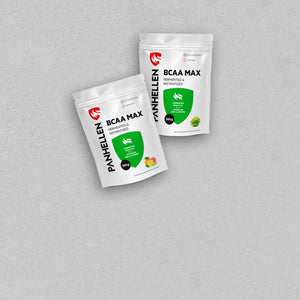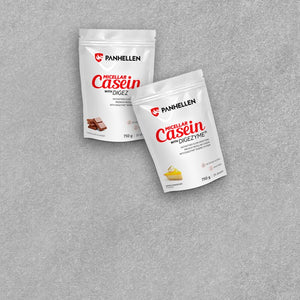Intermittent fasting: a guide for beginners!


Intermittent fasting: a guide for beginners!
Intermittent fasting is one of the most popular forms of nutrition in recent years. Although it has really caught on recently, intermittent fasting is by no means a new thing. Throughout our history, people have often fasted - not by choice, of course, but because they didn't have access to food at all times of the day. However, in today's consumer society, we can drop by the store at any time and have a snack without stopping. But does our body need this? Of course not. That's why it's worth trying the intermittent fasting diet.
But what exactly is intermittent fasting, and how do you get started if you're a total beginner? Read our article for a detailed guide!
What is Intermittent Fasting?
Intermittent fasting is not really a diet, but rather a nutritional habit, which, unlike diets, does not limit the consumption of food, but sets the duration of the meal.
During intermittent fasting, you eat for a certain period of time, while for a certain period of time you don't eat at all, so you are fasting.
There are several fasting methods, but the most common is the 16/8 method, based on which the 24 hours of the day are distributed in such a way that we eat in an 8-hour interval, while we fast in the remaining 16 hours. An example of this looks like this: we eat between 11:00 a.m. and 7:00 p.m., or between 12:00 p.m. and 8:00 p.m., and we fast during the remaining hours.
Of course, what we eat is also important, unfortunately this cannot be avoided. Intermittent fasting can be successful if we pay attention to what foods we eat during the meal period, and do not try to make up for the "renunciation" during the fasting period in these 8 hours.
Why is intermittent fasting good?
The advantage of intermittent fasting is that fat burning and the energy production process from fat can start during the fasting period. If we eat regularly, every 3-4 hours, the body produces the necessary energy from the food we eat, but in the case of fasting, it is forced to reach for fat stores.
On the other hand, it is enough to think that we are not eating for 16 hours, but only for 8 hours: we will certainly take in fewer calories. Of course, this can only work if you don't stock up and don't eat more than you would normally eat during the eating season.
How do you get started? Consult your doctor!
The success of a diet or eating habit is not as easy as it sounds at first. Among other things, it also depends on your health condition, whether you have any digestive problems or other underlying diseases. In such a case, it is not even certain that this kind of eating habit is recommended for you, so be sure to consult your doctor before starting intermittent fasting.
Skip just one meal first!
If you are used to eating every 3-4 hours, it will not be easy to switch to a 16-hour fasting period. That's why don't be surprised if the fasting hours are more difficult in the beginning.
Since intermittent fasting is a habit, it makes sense to build it up slowly. The first step is to skip a meal, so you gradually get your body used to the new eating system, you can avoid sudden hunger, and the first couple of fasting periods won't take as much of a toll on you mentally.
Postpone breakfast, bring dinner ahead!
Delaying the first meal and bringing the last one forward can also help in establishing fasting. You may not be able to fit into the 8-hour eating limit at first, but each day you will get closer to being able to pass the hours you spend fasting without starving. This is a great way to extend your fasting period until you reach 16 hours.
If you feel hungry and there are still a few hours left in your fast, food supplements can help you. Our BEACH product binds water in the stomach, thereby increasing the volume of the food consumed, which contributes to prolonging the time of stomach emptying and prolonging the feeling of satiety.
Eat healthy and varied!
A varied, nutritious meal is especially important during intermittent fasting, during the meal period it is worth consuming slowly absorbed carbohydrates and an adequate amount of protein, which give your body enough energy and will not make you hungry within 1-2 hours.
In addition to a varied diet, adequate liquid consumption is also essential. Here you can also cheat a little, because if you want some taste during the fasting period, you can drink coffee or sugar-free tea/soft drinks. You can also include a dose of BCAA drink before training.
If you are already an experienced faster and would like to increase the result, you can fast all day at intervals, but we only recommend this once a week.
Be persistent!
Introducing and maintaining a new eating habit is a big challenge. There are bound to be days when you wish it all to hell, but it's worth persevering. You will only really see the results if you do not break the fast, but maintain it in the long term.
We recommend that you try to plan your meals in advance, so you can avoid having to eat something suddenly during the fasting period.













